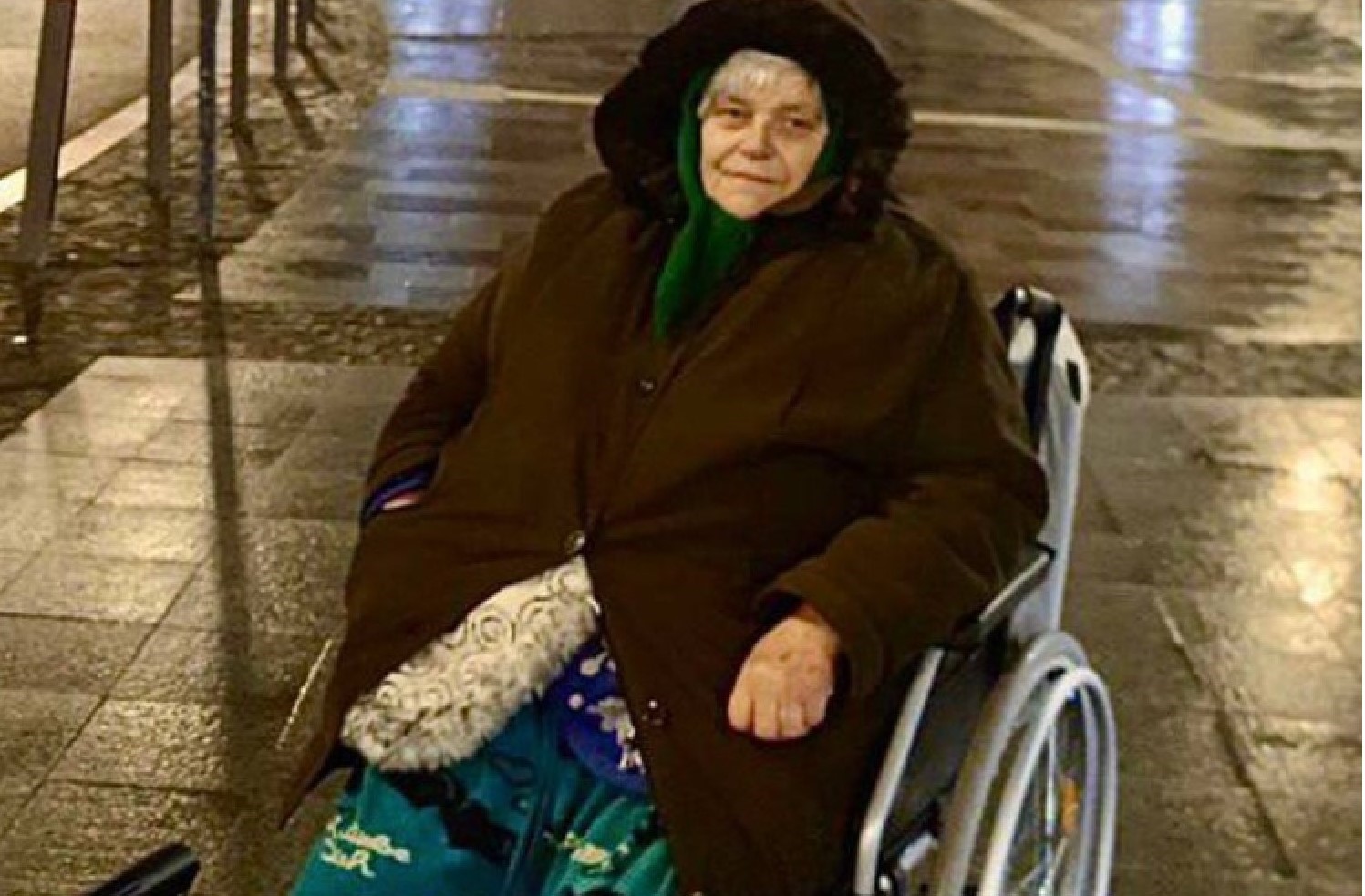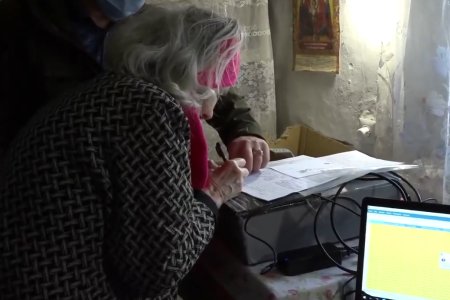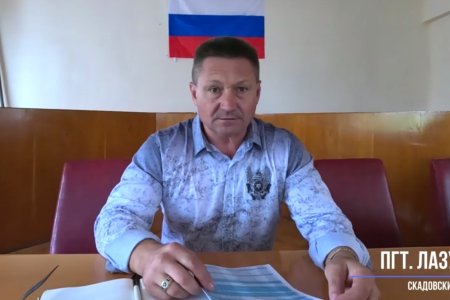
While calling its invasion of Ukrainian territory ‘liberation’ and claiming that a fake ‘referendum’ in 2022 showed ‘overwhelming support’ for ‘joining the Russian Federation’, Russia resorts to aggressive coercion to force Ukrainians from occupied territory to take its citizenship. Many of those who held out for over two years have been forced to give up, with Russia ever more brazenly forcing people to choose between taking the aggressor state’s passport or dying. Pensions and medical care are denied those without Russian passports; parents risk having their children taken from them if they don’t enrol them in Russian-controlled schools; and ownership of ones own home may be disputed if at least one of the owners does not have Russian citizenship. Suspilne journalist Maria Pedorenko has learned of the harsh dilemmas faced both by an elderly couple who remained in occupied Donbas, and by those whose city has been under Russian occupation since the full-scale invasion of Ukraine in early 2022.
Although the same basic forms of coercion were applied in occupied Crimea from 2014, slightly more robust response from the west led to Moscow taking a slower approach in occupied Donbas. It was only in April 2019 that Russian leader Vladimir Putin issued the first of two decrees, simplifying procedure for obtaining Russian citizenship, and then extended this procedure to all those Ukrainians living in Donetsk and Luhansk oblasts, regardless of whether they were under occupation. Until February 2022, it was still possible, although difficult, for Ukrainian pensioners to travel to government-controlled Ukraine and live off their Ukrainian pensions. If they needed health care, they could show their Ukrainian passports.
Mykola and Valentyna (all names have been changed to ensure the people’s safety) were two of a huge number of Ukrainians, especially older citizens, who remained even after their part of Donetsk oblast became part of the Russian proxy ‘Donetsk people’s republic’. The couple refused any documents from this fake entity and remained with their Ukrainian passports, etc. During that first phase of Russian aggression (2014-early 2022), Mykola often told their daughter by telephone that he and his wife would be wiling to testify at the courts in the Hague about the crimes they witnessed. Then came the full-scale invasion of Ukraine and Mykola’s family recount that the relentless Russian attacks and mounting number of victims took their toll on the elderly pensioner. In June, he told his daughter that he had no strength left, that he had given up. He died soon after that.
Valentyna was ‘lucky’ in that, although the occupation ‘authorities’ did demand proof of Russian citizenship, they did not refuse to issue a death certificate when she could show only Mykola’s Ukrainian passport. She buried her husband alone, however, as Russia’s full-scale invention meant that none of their children and grandchildren could be there.
Valentyna managed to survive without taking a Russian passport for a year after the death of her husband. She was even able to visit her daughter once, and recited poems by the great Ukrainian poet Taras Shevchenko to the Ukrainian border guards to show that Russian occupation had not shaken her Ukrainian position. Her daughter had hoped her mother would remain with them, however Valentyna was worried that their home would be taken from them is she stayed away. The fears were fully justified. Her neighbour, who had been away for a few months, arrived back to find that Russians had moved in and refused to vacate her home.
At the beginning of 2023, Valentyna received direct threats that is she did not take a Russian passport, she would be refused any pension or other social benefits and would not be entitled to any health care. By then, she had lost her Ukrainian pension as she could not get to a Pension Fund department in government-controlled Ukraine to confirm her identity.
Valentyna, and also an elderly couple in occupied Zaporizhzhia oblast, ‘Oksana’s parents’, receive financial assistance from their children in government-controlled Ukraine. Oksana says that her parents have thus far refused to take Russian citizenship, but that her mother says that this has become a matter of life or death. This is literally the case, as doctors may refuse to provide healthcare even for money, and the parents would not be admitted to an occupation hospital in an emergency.
In February 2024, Ukrainian volunteers managed to rescue Pani Antonina, an 80-year-old woman confined to a wheelchair who had been refused healthcare or a pension in occupied Donbas oblast, because she had refused to take Russian citizenship.
Nor are medical emergencies the only problem. Russia has been abducting, torturing and imprisoning civilians seized in any Ukrainian territory that fell under its control since February 2022. Some of their victims have just been in the wrong place at the wrong time, but refusal to take Russian citizenship might well be viewed as proof of a person’s support for Ukraine and opposition to Russian occupation, with no more needed.
Earlier this year, Ukrainian human rights organizations issued a warning about the dangers of trying to return to occupied territory to prevent homes being seized by the invaders. They stressed that any ‘re-registration’ of property according to Russian legislation would have no legal force in Ukraine, while the Ukrainians themselves would be in danger of being seized by the invaders and accused of ‘spying’ or similar. At present, anybody trying to reach occupied territory has to go through Sheremetyevo Airport in Moscow where they are put through appalling interrogation, with their phones or other devices removed and scrutinized. Pavlo Lisniansky, co-founder of the East Human Rights Group, recently reported that these measures, called ‘filtration’, have intensified. Over the summer months, there had been a lot of cases where people received ‘life bans’, purportedly on entering Russia, but in fact also meaning that Ukrainians were stopped from returning to their own homes and Ukrainian native cities. Some were told that their property in occupied Ukraine had already been ‘confiscated’ and that there was no reason to return.



